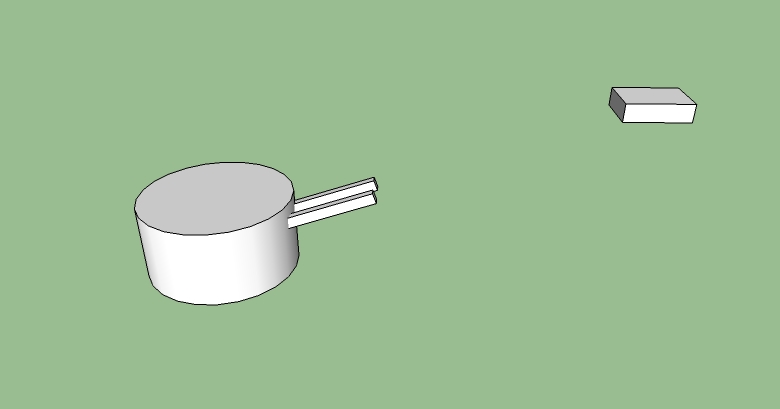
The barrel is attached to the turret (so that it moves when the turret moves). The barrel is attached at an offset of [0,0,0] in turret space (so the origin of the barrel is the same as the origin of the turret). Assume that if the rotational matrix of the barrel (in turret space) is the identity matrix I, the barrel points straight down the z-axis of the turret.
You wish to rotate the turret and raise the barrel so that it points at an object at position p = [px, py, px]. Show how to create the rotational matrix for both the turret (in world space) and the barrel (in turret space). Feel free to define "local variables" in your answer (such as, let x = || p1 × p2||)
- The position of the sun us given a s a 3-Vector in world space possun
- The location of planet p1 is given as a scalar distance from the sun dp1 and orientation (quaternion) qp1 which describes how much we need to rotate the vector [0, 0, dp1] so that it points from the sun to planet p1
- Likewise, the location of planet p2 is given as a scalar distance from the sun dp2 and orientation (quaternion) qp2 which describes how much we need to rotate the vector [0, 0, dp2] so that it points from the sun to planet p2
- The location of moon m1 is given as a scalar distance from the planet p1, dm1 and orientation (quaternion) qm1 which describes how much we need to rotate the vector [0, 0, dm1] so that it points from the planet p11
- The location of moon m2 is given as a scalar distance from the planet p2, dm2 and orientation (quaternion) qm2 which describes how much we need to rotate the vector [0, 0, dm2] so that it points from the planet p22
int &weird(int &x)
{
return ++x;
}
int main()
{
int x = 1;
int &y = weird(x);
printf("x = %d, y = &d \n", x, y);
y++;
printf("x = %d, y - %d \n", x, y);
}
Bonus question: If we change the ++x to a x++, then the code will no longer compile. Why not?
-
MyTable = {[1] = 2, [2] = 2, [5] = 1, [6] = 1} s1 = 0 s2 = 0 for k,v in pairs(MyTable) do s1 = s1 + k s2 = s2 + v end print(s1,s2) -
x = 2 y = 3 function twist() local x = 7 x,y = y, x print(x,y) end twist() print(x,y)
-
ft = {} ft[1] = function(x, y) return y,x end ft[2] = function(x, y, z) return z, y, x end a, b, c = ft[1](1,2,3) d, e, f = ft[2](4,5,6) print(a, b, c) print(d, e, f)